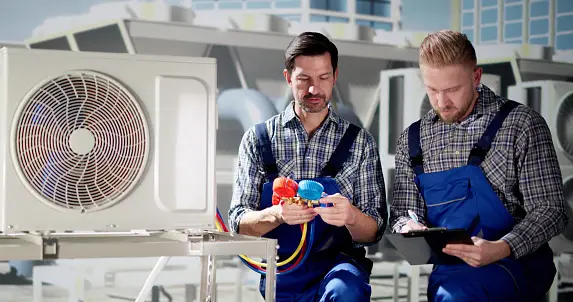
Air conditioning units are a necessity in Florida, where heat and humidity are a year-round reality. But how long should you expect an AC unit to last in this climate? The average lifespan of an air conditioning system in Florida is typically 10 to 15 years, though various factors can influence this range. Here’s what homeowners should know about the longevity of AC units in Florida and how to keep them running efficiently for as long as possible.
Florida’s Climate and Its Impact on AC Systems
The tropical climate in Florida is tough on air conditioning systems. High temperatures, along with frequent humidity and salty coastal air, mean that AC units often have to work harder than in other parts of the country. These conditions can put extra strain on components, leading to wear and tear more quickly than in cooler, drier climates. This is why AC systems in Florida may have shorter lifespans than those in other areas, where they aren’t used as intensely or exposed to the same environmental conditions.
Quality of Installation and Its Role in Longevity
An AC unit’s lifespan isn’t just about the equipment itself. Quality installation also plays a significant role. Poorly installed units can experience airflow issues, refrigerant leaks, and other complications that lead to breakdowns over time. Hiring a licensed and experienced HVAC technician for installation can make a big difference. A properly installed system operates more efficiently, handles Florida’s heat better, and typically lasts longer than a system that wasn’t set up correctly.
Maintenance Can Extend Your System’s Life
Routine maintenance is one of the most effective ways to ensure your AC unit lasts as long as possible. Simple steps, such as replacing air filters every month or two, checking refrigerant levels, and having the unit professionally inspected at least once a year, can make a substantial difference. Preventive maintenance can catch minor issues before they become major problems, helping to reduce strain on the unit and increase its lifespan. Skipping maintenance can reduce efficiency, which not only shortens the life of the system but also leads to higher energy bills.
Quality and Type of Unit Matter
The brand, model, and efficiency rating of your AC system also affect how long it will last. Higher-quality units with good SEER (Seasonal Energy Efficiency Ratio) ratings are designed to operate more efficiently, especially in warmer climates like Florida’s. Though they may have a higher upfront cost, these units often pay off in longevity and energy savings. Additionally, selecting the right size for your home can prevent the unit from working too hard, which reduces wear and tear over time.
Florida-Specific Factors to Consider
Factors like salt in the coastal air can cause parts to corrode more quickly in Florida than in other areas. If you live near the coast, it may be wise to consider protective coatings for outdoor components or units designed to handle corrosive environments. Regularly washing down the outdoor unit with water to remove salt buildup can also help. The outdoor environment in Florida makes it even more important to schedule routine check-ups and replace parts as needed.
Signs It Might Be Time to Replace Your AC
Even with the best maintenance, AC units eventually reach the end of their lifespan. If you notice that your system is struggling to cool your home, needs frequent repairs, or leads to rising energy bills, it may be nearing the time for a replacement. When repair costs approach 50% or more of a new unit’s price, it’s often a better investment to install a new, more efficient model.
Choosing When to Replace
Knowing that AC units in Florida typically last between 10 and 15 years can help homeowners budget for a replacement before their unit unexpectedly fails. While some units may last beyond 15 years, those operating in Florida’s intense climate often see diminishing efficiency and comfort around this point. By replacing your AC before it completely wears out, you avoid last-minute replacement costs and ensure a smooth transition to a new, more energy-efficient unit.
Conclusion
For homeowners in Florida, understanding the factors that affect AC lifespan can help you get the most out of your system. Regular maintenance, quality installation, and awareness of Florida-specific needs go a long way in keeping your AC unit running smoothly.